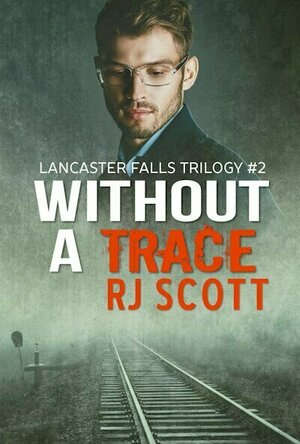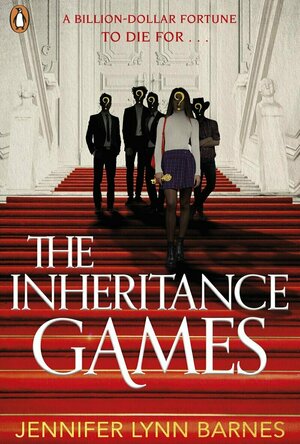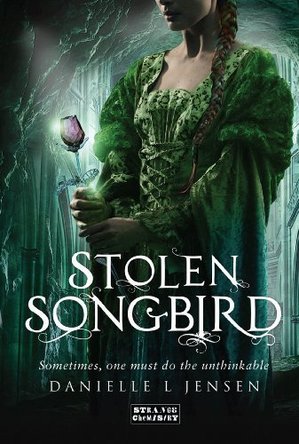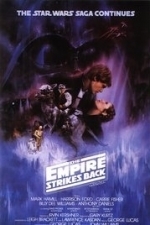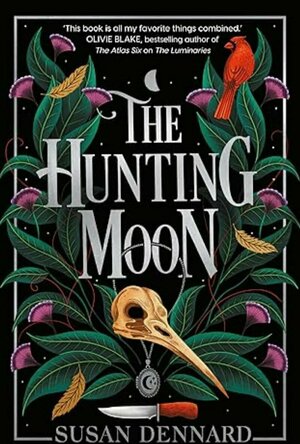Debbiereadsbook (1669 KP) rated Without a Trace (Lancaster Falls Trilogy #2) in Books
Mar 23, 2020
Bok two in the Lancaster Falls trilogy. I would say you really SHOULD read book one, What Lies Beneath, before this one. There is a underlaying story line that runs through all three and you need the information that comes out in that book.
Drew returns home when his brother's remains are discovered. Logan is a cop in town, and the pair butt heads. But deeper than the need to know what happened to his brother, Drew finds he needs Logan at his side. Both men have their secrets, though. As the town reveals its darker side, Drew and Logan have to decide whether the other is worth the heartache.
So, book 2 and Lancaster Falls is giving up its secrets. Darker, deadly and so much MORE than book one, I LOVED this!
Drew ran, after Casey disappeared and did not return. He said some things, his mum said some things and they fell out, and Drew ran away to the army. Now, with Casey's body being found, Drew returns to face not only his own demons, but Casey's too. Logan is a distraction, one he will willing use to attempt to shut out his problems.
Logan will, in turn, use Drew but to a lesser extent. Their first coming together is angry, its a battle, and its glazed over in a way that I really and honestly LOVED! I mean, the whole scene is a couple of pages, but it packs a powerful punch. It sets the way for these two, in a way I really enjoyed watching develop, and in a way I really didn't quite see coming.
Something set me off about certain people, and turns out, I was right, but now I'm left with some questions about how things will become clear as to what happened, not only to Casey, but the others.
Again, nothing is laid out for you, and I find myself putting bits together all wrong and now, I want book three! I NEED book three and I have to wait til June. I need to know what happened to everyone, and what that epilogue means, cos let me tell ya, I have no freaking clue how this will play out and I bloody LOVE that I don't!
5 more amazing stars!
**same worded review will appear elsewhere**
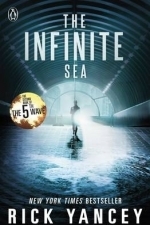
The Infinite Sea
Book
The Infinite Sea is the second book in the phenomenal and bestselling 5th Wave series by...
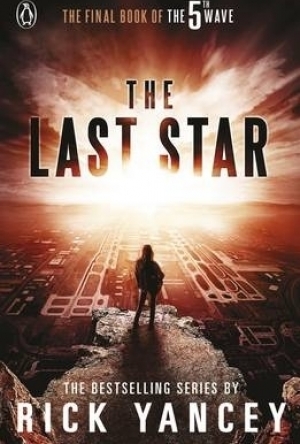
The Last Star
Book
The Last Star is the heart-stopping finale to the bestselling 5th Wave series by award-winning...
ClareR (6096 KP) rated The Inheritance Games in Books
Sep 8, 2020
Avery Grambs wants more from her life than living hand to mouth, as she seems to be doing with her sister. Her mother has died, she has no contact with her father. She decides that the best way to change her life is to get a good education at a very good college, with the help of a scholarship. Indeed, she does seem to be very clever.
And then a young man comes to her school, and tells her that she has inherited some of the fortune of Tobias Hawthorne - a man she has never met and knows nothing about. In order to keep her inheritance and deprive the rest of the Hawthornes from getting their hands on the money, Avery has to live for a year in the Hawthorne mansion. Sounds easy, but it’s not. It’s a sprawling, maze-like place, with secret corridors and countless rooms. And the Hawthorne grandsons, on the whole, don’t seem to be hugely keen on her living with them, and neither does their mother.
No-one, including Avery, can understand why she should inherit the Hawthorne fortune. Tobias Hawthorne has one last Rick up his sleeve - a treasure hunt of sorts, that he set before his death for his grandsons and Avery. Just the thing to bring them together - or is it?
I thoroughly enjoyed this. Yes, it’s a bit far-fetched, but who hasn’t wanted to become the equivalent of a billionaire? To never need to worry about money? To have the house version of the Tardis?! This last bit, actually, would totally do it for me - as long as I could cleaners!
I think this will be the first in a trilogy, and I have a sneaking suspicion that I’ll be reading the next one. YA isn’t just for the kids, you know!
Many thanks to the Pigeonhole for making sure I read another one of my NetGalley books, and the publisher for an ebook copy.
Leanne Crabtree (480 KP) rated Stolen Songbird (The Malediction Trilogy, #1) in Books
Sep 6, 2019
4.5 stars
I love the cover of this; its very eye catching. Ill admit that covers attract me to books and this drew my attention straight away. Then I saw the name and I said to myself, I have to read this. But then theres the fact that Im rather picky with my fantasy books (loving the Throne of Glass series but not liking Daughter of Smoke and Bone). Nevertheless I jumped straight into the book.
This is only my second ever troll book but considering the other was just a short story, I was looking forward to learning more about them. And I wasnt disappointed. They sound equally enchanting and terrifying depending on who you meet. And I like the thought of there being handsome troll princes very much :D
Cécile is quite a tough girl. She doesnt mind giving as good as she gets verbally which I like about her. As for Prince Tristan, I liked his sarcasm at the start, even if it was directed at Cécile. And then I just sort of grew to like him. Some of the secondary characters were just as likeable, such as Marc and the twins.
There was an interesting storyline to this; almost a good versus evil plot but much more complicated. It was all very political and about who should rule Trollus and how. I wish I could go into detail but that would ruin the plot.
Then comes the romance aspect. I loved the progression of Cécile and Tristans relationship. They might not have liked each other in the beginning but as they got to know each other better it was very sweet reading and I was cheering them on from fairly early in the book.
To go back to my pickiness with fantasy. I have to say I loved a lot of what this book had going for it. The lights that are created by magic (especially Céciles own) are genius and the Glass Garden sounded amazing. I bet it looks lovely lit up!
I laughed, I ranted, I cried twice. It was a bit of an emotional rollercoaster for me but I thoroughly enjoyed it and look forward to reading the next book in the trilogy.
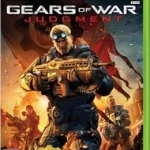
Gears of War: Judgment
Video Game
Gears of War: Judgment" delivers the most intense and challenging "Gears" game yet, with a campaign...
Matthew Krueger (10051 KP) rated Star Wars: Episode V – The Empire Strikes Back (1980) in Movies
May 6, 2020 (Updated May 6, 2020)
The plot: The adventure continues in this "Star Wars" sequel. Luke Skywalker (Mark Hamill), Han Solo (Harrison Ford), Princess Leia (Carrie Fisher) and Chewbacca (Peter Mayhew) face attack by the Imperial forces and its AT-AT walkers on the ice planet Hoth. While Han and Leia escape in the Millennium Falcon, Luke travels to Dagobah in search of Yoda. Only with the Jedi master's help will Luke survive when the dark side of the Force beckons him into the ultimate duel with Darth Vader (David Prowse).
To me their are better movie sequels than this one like.. "Back To The Future Part II", "Lord of The Rings: The Two Towers", "The Dark Knight", "Captain America: The Winter Soilder", "Toy Story 2", "Terminator 2: Judgement Day" and "Aliens". All of these sequels are 10x better than Empire Strikes Back.
AFI's 100 Years...100 Movies – Nominated
AFI's 100 Years...100 Thrills – Nominated
AFI's 100 Years...100 Heroes and Villains:
Darth Vader – No. 3 Villain
AFI's 100 Years...100 Movie Quotes:
"I am your father." – Nominated
"Do, or do not. There is no try." – Nominated
AFI's 100 Years...100 Movies (10th
Anniversary Edition) – Nominated.
Darth Vader was ranked as the third-greatest film villain of all time in the American Film Institute's 2003 list of the 100 greatest heroes and villains, and Wizard magazine selected the ending of The Empire Strikes Back as the greatest cliffhanger of all time.
The line "No, I am your father" is often misquoted as "Luke, I am your father." The line was selected as one of the 400 nominees for the American Film Institute's 100 Years... 100 Movie Quotes, a list of the greatest American film quotes.
I think Empire Strikes Back, even though its good. Its overrated and hyped up, to the point were its not just not as good as people say it is.
Like i said its good, but not excellent.
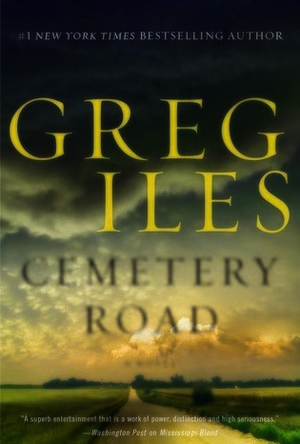
Cemetery Road
Book
The #1 New York Times bestselling author of the Natchez Burning trilogy returns with an electrifying...
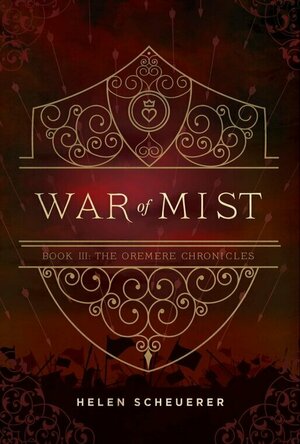
War of Mist (The Oremere Chronicles #3)
Book
War is here. Toxic mist drives all life to the brink of destruction and the conqueror queen, Ines,...
ClareR (6096 KP) rated The Hunting Moon in Books
Dec 12, 2023
The world of Hemlock Falls is an interesting one - shut off from the non-magical, they look down on them somewhat, but still feel compelled to keep them (and themselves) safe from the nightmares in the forest separating the two peoples.
We join Winnie Wednesday after she has passed the hunter trials, her family has been welcomed back into the Luminaries after being cast aside by them for some reason (in book 1, I believe!), and Winnie is now a local celebrity. Not that she’s enjoying it very much. She’s worried that everyone is passing her attacker off as a werewolf, and she’s pretty certain that it’s another creature called a Whisperer. And the Whisperer is still killing hunters every night.
There’s a bit of romance as well - Jay Friday, who seems to have his own problems that he doesn’t want anyone to know about, is making advances to Winnie, and she doesn’t mind one bit. He’s a nice boy (I sound like a mum here, I cannot deny I am one).
I listened to this on Bolinda Audio through NetGalley, and the narrator, Caitlin Davies reads the story so well. There’s nothing quite like a good narrator, adding value to a story and bringing a world to life. The feelings of the characters were conveyed so effectively that I felt fully involved.
I think this opens up a whole argument as to whether books should be sectioned off into age groups. I mean, this is YA, so aimed at 12-18, and I can’t for the life of me understand why? Perhaps I’m a simple soul. OK, there’s no sex, but I’ll be honest - I don’t want to read about sex all the time. It can get a bit boring (controversial, perhaps, but there’s my opinion!). And YA seems to do fantasy and science fiction SO WELL!!
So I’m off to read The Luminaries and fill in some gaps, because I loved this second in what I assume will be a trilogy.
